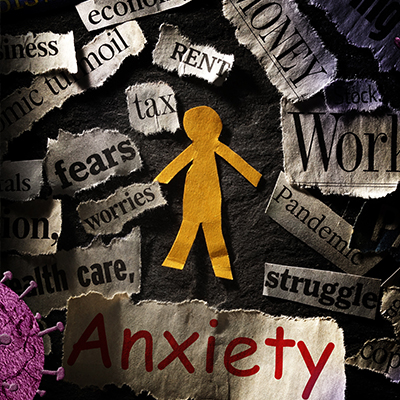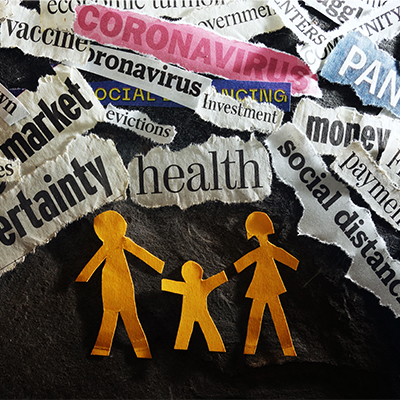Around the globe a number of economies, including Australia’s, are starting to emerge from lockdown. While the coronavirus has not disappeared, governments and individuals are increasingly aware of what they need to do to manage ongoing risks and keep our economies afloat.
So, what has COVID-19 taught us about today’s economy? Here, Professor Andrew Beer, Executive Dean, UniSA Business shares 10 things that COVID-19 has taught us about the Australian economy.
1. Supply chains are longer and more fragile than we thought
In Australia, and globally, we came to realise that critical materials and infrastructure – from chemicals used to test for COVID-19 through to respirators to support hospitalised patients – came from a small number of sources a long way away. The consequence was massive delays, as retailers were unable to source supplies that had never previously been unavailable, leading to a national discussion around the need to establish sovereign capability in manufacturing and other productive activities.

2. In a crisis, people still panic buy, even when there is no shortage
In Australia, a shortage of supermarket stock made headlines across Australia. Empty shelves of toilet paper soon extended to shortages of hand sanitisers, soaps, and pantry items such as flour and pasta. This led to shops restricting purchases per transaction, the closest we’ve come to rationing since World War II. Certainly, hoarding does not make sense, but in uncertainty, irrational behaviour prevails.
3. We can close down our economies remarkably quickly
As soon as the connection between travel and COVID-19 was established, governments around the world brought travel to a halt, imposing curfews and effectively placing their economies into ‘deep freeze’. More than five months since the first case was reported in Wuhan, international travel is still restricted, with many state and territory border shutdowns also in effect within Australia. More broadly, we closed the majority of our businesses: cafes, hotels and restaurants, as well as gyms, places of worship and, in places, schools. Many other business owners realised there was little value in continuing to trade in an environment devoid of customers, with their voluntary closures adding to the unemployment queues and the sense of significant change.
4. Information technology really is as good as the hype
Almost without pause, businesses around the world transformed to online activity enabled by video-conferencing and online processing. Online meetings, remote sales, and digital outreach services swiftly pivoted face-to-face services to online operations. Now, as businesses consider how they might return to some semblance of normal, we should expect many of these online adjustments to stay.
5. Developed economies are very dependent on high-touch industries to create jobs
As cafés, restaurants, spas and gyms closed, unemployment queues soared, showing just how dependent Australia is on customer service driven industries. While April statistics revealed unemployment at 6.2 per cent, the number of people with a job collapsed by almost 600,000 – the biggest drop in history. As Australia starts to gear up for the future, these are the sectors governments are seeking to kick-start.

6. The health economy is more than just emergencies
Government actions to ensure all possible health resources were available to deal with COVID-19 had the perverse outcome of putting health workers out of work as dentists and minor surgeries were shut down. The hasty move to stop all ‘non-urgent’ surgeries saw thousands of Australians needing operations such as hip surgeries or knee replacements left in limbo – and so too the doctors, nurses and medical professional within those fields – illustrating the broad scope of the health sector. Elective surgeries made their return on 14 May in South Australia.
7. The future of property markets is uncertain, especially commercial property
Many businesses, having discovered they can work virtually, must be asking themselves why pay rent? Especially, when many key staff have discovered they much prefer to work from home. With benefits ranging from a lack of long commutes in rush hour, to proven productivity resulting from flexible work, the pandemic has shown the validity and efficiency of virtual offices.
8. In the 21st century, every economy is dependent on others
Whether it is the education sector, manufacturing, tourism or mining, global demand is pivotal to success and no business can escape the impact of shocks to major trading partners. Critically, how each nation and each industry react has important flow-on effects for others. In Australia, few visitors or students have arrived from China, but ongoing demand from Chinese steel mills has sustained our exports of iron ore. And, in the case of iron ore, the profound impact of COVID-19 on Brazil has kept prices and Australian export volumes robust.
9. Most people still trust their governments in a time of crisis
Globally, and in Australia especially, compliance with government lockdown provisions was high, enabling the reopening of some economies more quickly and with greater safety. Adherence to social distancing, travel restrictions and quarantines have seen South Australia become effectively COVID-19-free. This achievement has added to the State’s lustre as a safe destination and brought forward activities such as major sports events in front of a (smaller) crowd, the opening of bars, and the continuation of schooling.
10. Finally, rebuilding economies takes longer than shutting them down, but economic and labour market reform has made us much more flexible than we used to be
Already, green shoots are appearing within the economic landscape, but the challenge for us now, will be to nurture their growth. Governments clearly have a role to play, but so too do individual businesses and consumers. For owners of small firms and the managers of larger enterprises, this time of transition presents an opportunity to rethink their businesses. This is not a time to retreat to solely local markets and local demand. Instead, the brightest horizons are open for those who continue to engage locally but reach out to the global stage.







